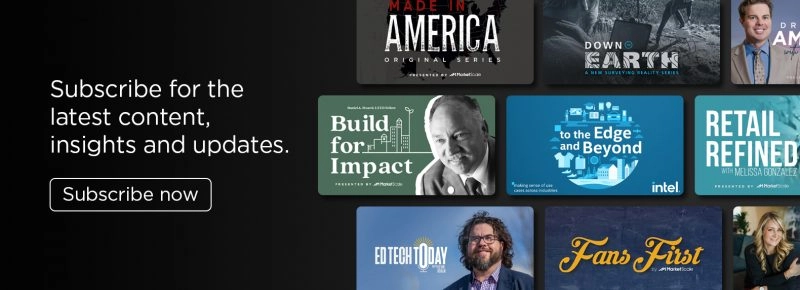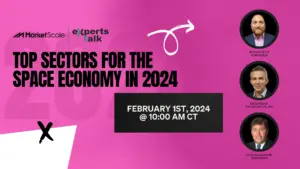Virgin Galactic Holdings CEO Michael Colglazier on Space Test Flights
Virgin Galactic Holdings’ recent successful launch rocketed confidence in the viability of commercial space travel. Watch below to see CEO Michael Colglazier react to the launch and comment on efforts to move towards commercial space tourism.
Colglazier: We had three big points we were trying to do in this test flight, the first was to test a new set of digital controllers that we have for the pilots, give them tighter steering. It worked flawlessly. It went really well as it curved just straight up into space and beautiful flight. Second thing we were doing was to ensure that we had the electromagnetic interference issue from earlier in the year and all the work that we had done on that completely eliminated that problem for us. And then finally, we collected data that we sent over to the FAA and we believe that will give us a great opportunity for them to analyze it, and then hopefully clear our license for commercial flights. So, all in all, just a beautiful day.
Host: Michael, it’s Guy in London. So what’s the journey between now and that points that license being achieved? What needs to happen? When’s the next flight? And what sort of milestones does that. Next slide have to achieve?
Colglazier: Sure well, this was our third flight to space with humans, the first from the state of New Mexico, which is a beautiful, beautiful place to look back down upon the planet. And what follows next. We have three more flights in our test flight program. Our next one will come up with a full crew of mission specialists and back. In addition to our two pilots, that one will be followed with a repeat. But we’re asking our founder, Richard Branson, to come on and really test the private astronaut experience for us. We think, who better to do that? And both of those, we expect to happen this summer. And then that will be followed by our final test flight that’s planned with the Italian Air Force really showcasing how our space systems used for microgravity science research as well as professional astronaut training. And we think that will likely happen late summer or early fall.
Host: So let’s get to that in terms of the preflight training. So we’re going back and forth on this. How healthy do you have to be? What kind of training does there have to be for a regular person to eventually book a flight on this?
Colglazier: So what’s really unique about Virgin Galactic is we take the first 50,000 feet or so with airplane technology. So we take off horizontally and our mother ship climbs out to 40, 45, 50,000 feet. And then from there, the spaceship drops and then rockets up. So it’s powerful, but reasonably smooth because we’ve gone through the heaviest part of the atmosphere, just like you would in a commercial airliner. It’s really important to stay fit in general, but it’s not something that needs years and years of training. So we recommend people stay flexible because they want to be moving around in a weightless environment and kind of looking out all the windows. But generally, we think as long as people are taking care of themselves, lots and lots and lots of people will be able to go with us.
Host: OK, so not much training, Alex was concerned that I was getting a little bit old, maybe I was working so hard to think about. Let’s talk about price. In terms of this venture going forward, Michael. This is a question that I’m surprised I’m asking, but I guess we’ve got to think about it going forward, what is the path to profitability? When do you think this is profitable? Once it starts getting up and running and you kind of get through the initial kind of phase on this and this becomes more commonplace. You got to be making money off this. When do you think you’re going to be making money off this?
Colglazier: Well, the first thing we need to do, obviously, finish this test flight program. And then move into commercial service. And we believe this is going to be a supply constrained business for quite some time. The demand of this is going to be well out in front of our ability to build and scale the fleet up for a while. And as such, it will be reasonably expensive as it goes forward. Our previous 600 people generally had a price around $250,000 each. We have not announced what our pricing will be going forward. We said it will be higher in the beginning. We do see pricing of around $600,000 for per seat equivalent for our microgravity research flights. But again, we have not put pricing out for the private astronaut market.
*Bloomberg contributed to this content
—
Follow us on social media for the latest updates in B2B!
Twitter – @MarketScale
Facebook – facebook.com/marketscale
LinkedIn – linkedin.com/company/marketscale









